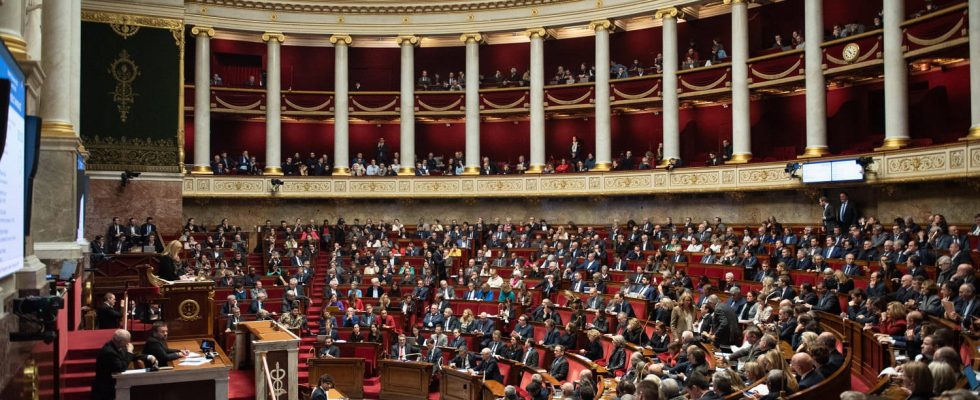This non-obligatory tradition had not been respected by Élisabeth Borne. Since Monday, opposition elected officials have demanded that the new Prime Minister seek a vote of confidence from parliamentarians, threatening to table a motion of censure if this is not done.
“It does not matter who the monarch replaces [Élisabeth Borne]we demand a vote of confidence in Parliament!” pleaded as soon as the Prime Minister’s resignation was announced on Monday, the president of the La France insoumise group in the National Assembly. And Mathilde Panot to threaten on : “Without this vote of confidence, we will table a motion of censure.” Tuesday morning, the boss of the communists, Fabien Roussel, agreed with this on TF1 : “The least that can be done is for the new Prime Minister to give his direction to the National Assembly in his general policy speech […] and there is a vote behind it.”
However, if the Constitution of October 4, 1958 provides that the new Prime Minister can “initiate before the National Assembly the responsibility of the government for its program” (article 49 paragraph 1 of the Constitution), nothing obliges the new tenant to Matignon to take part in the exercise either. This is also the solution that Élisabeth Borne preferred to opt for in her time, thus refusing to submit to the vote of confidence. A judicious choice at the time, given the relative majority of the Macron camp in the National Assembly. Because in the event of a negative vote, the government must automatically submit its resignation according to the terms of article 50 of the Constitution.
While the situation at the Bourbon Palace has barely changed between the arrival of Élisabeth Borne and that of Gabriel Attal, the new Prime Minister could choose to follow in the footsteps of his predecessor. But the opposition is already threatening to table a motion of censure. A risky bet for Gabriel Attal? Not really, because concretely, this motion of censure, which should then still receive an absolute majority of 289 votes, would above all aim to “clarify who supports the government and its policy […]and on the other side, who opposes this policy”, explained on South Radio LFI MEP Manon Aubry this Tuesday.
